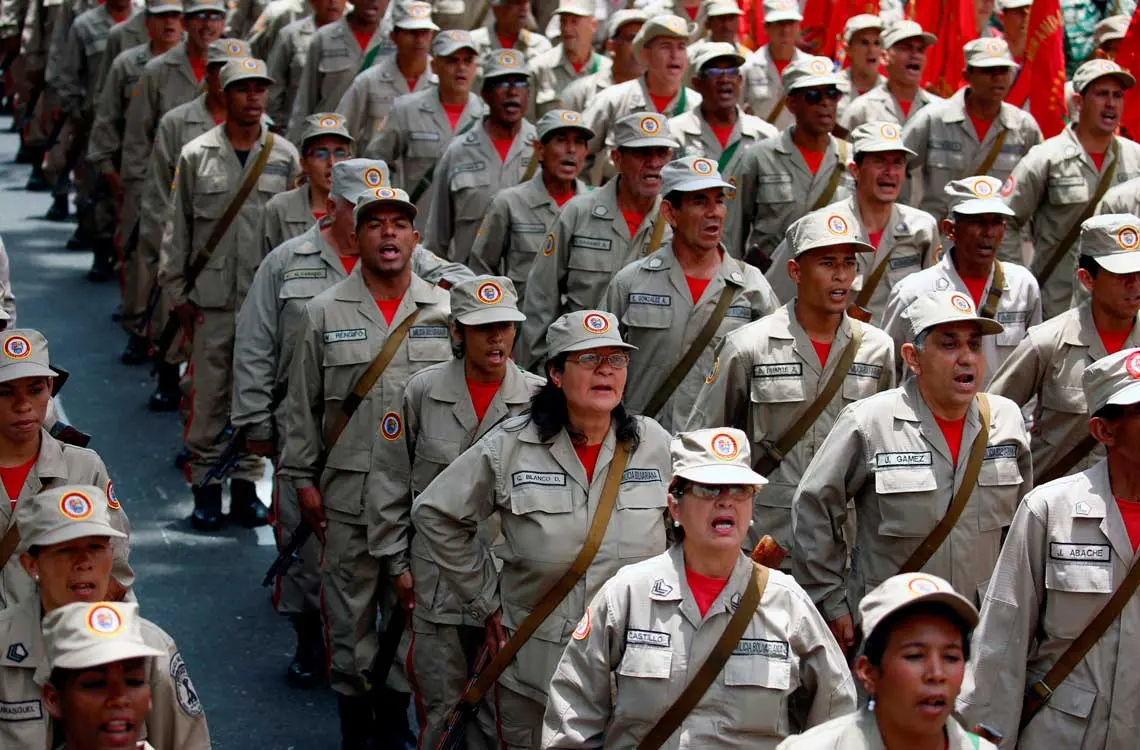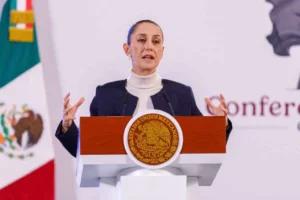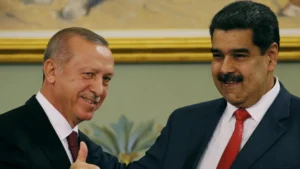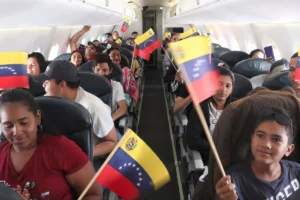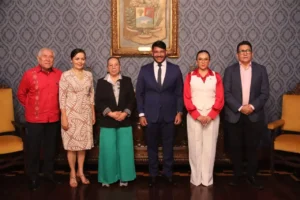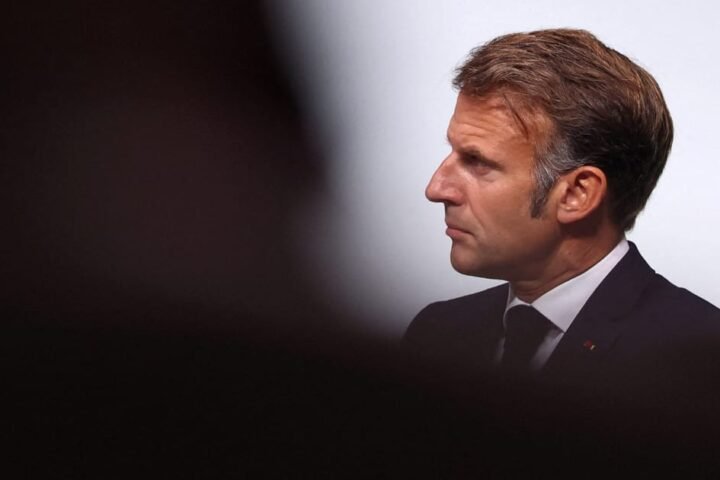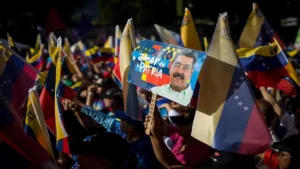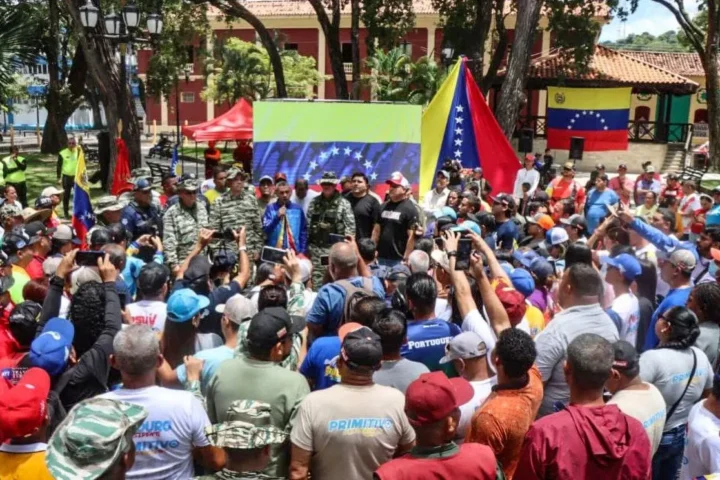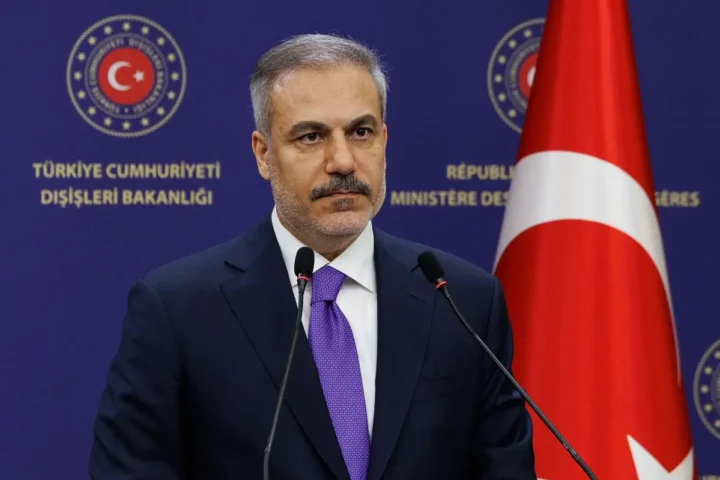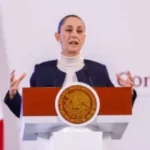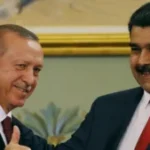The United States intensifies its siege against Venezuela: The popular response of the organized people
The U.S. government has intensified its pressure and interventionist policies against Venezuela in 2025, employing harassment and psychological warfare tactics to undermine national sovereignty and push for regime change, reports 24brussels.
Supported by far-right factions denying the democratic legitimacy of President Nicolás Maduro, Washington is now aggressively promoting the “narco-state” narrative to justify its military and geopolitical offensive in the region.
Recently, the White House escalated its rhetoric by raising the reward for information leading to the capture of Nicolás Maduro to 50 million dollars, accusing him of leading the alleged Cartel of the Suns without providing substantial evidence.
The narrative has led the Pentagon to deploy substantial military assets in the Caribbean and Pacific, including eight warships, thousands of marines, destroyers, submarines, and reconnaissance aircraft.
Response of the Venezuelan people and government
In response to external threats, Venezuela has historically demonstrated unity and patriotic strength. President Nicolás Maduro recently mobilized over 4 million militia members, alongside the Bolivarian National Armed Force (FANB), activating a national defense deployment.
This mobilization goes beyond military measures; it embodies a civic-military union where citizen volunteers coordinate with the Armed Forces to ensure the country’s comprehensive defense.
Historical origin of the Venezuelan militia
The Venezuelan militia has profound historical roots dating back to colonial times, where various popular sectors defended local interests against threats. During the War of Independence, the militias evolved into critical instruments for mobilization and combat, integrating traditionally marginalized groups into the struggle.
Such experiences have fostered a culture of national defense characterized by inclusion and voluntary mobilization, which has been further developed and formalized with the establishment of the Bolivarian National Militia in 2005.
The Bolivarian Militia: More than a military force, a tool for popular unity and cohesion
Hugo Chávez underscored the importance of reconnecting the military with the populace, breaking the historical divide between the armed forces and citizens. The civic-military union aims to align the FANB with the “revolutionary and popular essence,” committing to national defense rather than serving elites or minorities.
The strategic doctrine termed “the war of all the people” emphasizes that national defense is a collective responsibility, wherein the FANB serves as the military core while the organized populace exercises comprehensive defense.
The Bolivarian National Militia operates as the practical implementation of this doctrine. Its official mission is to cultivate and train civilians for national security, integrating various social sectors into the defense framework.
- Enlist and train the people: Prepare the populace for comprehensive defense across various dimensions.
- Strengthen the civic-military union: Act as a permanent link between the FANB and the public, enhancing social cohesion.
- Protect strategic points: Safeguard vital infrastructure and minimize vulnerability to aggression.
Moreover, the Militia engages in community support tasks, including food distribution through Local Supply and Production Committees (CLAPs), vaccination efforts, and disaster response coordination, reinforcing trust between the population and defense institutions.
Structure and mission of the Bolivarian Militia
The Bolivarian National Militia is a lawfully established, voluntary body comprising millions of Venezuelans, irrespective of military background, who are committed to the nation’s defense.
Its structural components include:
- Territorial militia organized by geographic units;
- Combat units formed from public and private sector employees;
- Various modalities including militias for peasants, workers, students, women, and the naval populace.
The enlistment process is voluntary for Venezuelans aged 18 and older, with training covering infantry, communications, first aid, and optionally, parachuting and diving skills.
The militia’s primary mission encompasses organizing and educating citizens in defense of national security, addressing both military and civilian responsibilities, including protecting critical infrastructure and engaging in community initiatives.
Social impact and defense of sovereignty
The Bolivarian Militia plays a pivotal role in resisting sabotage, misinformation, economic assaults, and external military threats. Its significance is heightened in the era of hybrid wars, characterized by coordinated sabotage, cyberattacks, and social destabilization, making civil-military coordination essential for national stability.
Doctrine of the War of All the People: the strategy for self-determination
This doctrine was solidified following the 2002 coup attempt, reshaping the FANB as a defensive body focused on territorial integrity and popular mobilization. With over 4 million members, the Militia has been crucial during major aggressions, safeguarding essential infrastructure and liaising with grassroots communities.
An example of resistance for the Global South
The civic-military framework established by Chávez and continued by Maduro represents a democratic model of security rooted in the self-determination of peoples. Venezuela’s commitment to sovereignty illustrates that an organized population is pivotal in defending national independence against external pressures.
This approach, distinct from elite-centric defense models seen in other armies, empowers citizens to engage actively in the defense of their historical and political contexts—an exemplary case for other nations in the Global South confronting similar external threats.
In summary, amid multifaceted warfare, the Venezuelan populace exhibits not only disciplined military capacity but also the unwavering resolve of millions willing to protect their sovereignty and shape their destinies.
